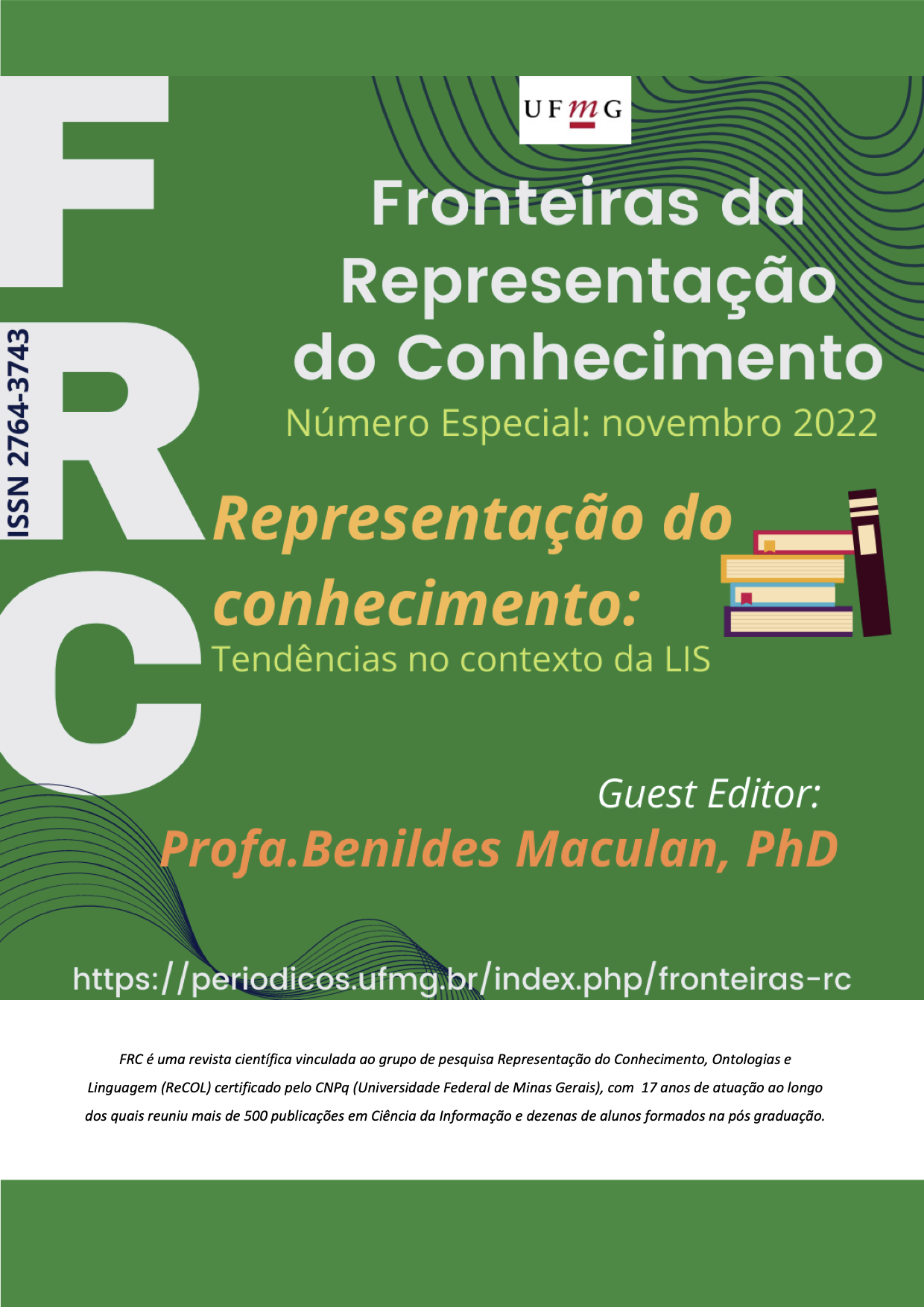The Literary Warrant in the Representation of Knowledge
Main Article Content
Abstract
One of the first steps in building a controlled vocabulary (VC) is the selection and validation of terms that will be included in the instrument. Among the
oldest principle that are used for this process is the literary warrant, first introduced
by Hulme (1911), who assumes that this selection must be based on the literature of
the area, with the most representative terms, empirically, in this case, selected from
the document. Considering that this principle has not been studied much, given the
incipience of the literature on the subject, especially with the emergence of new
knowledge organization systems (SOC) and new technologies, this study is based on
the following question: the contributions of Hulme's (1911) literary warrant
principle is followed in selecting and validating the terminology of a domain for its
representation in the current context? Thus, the objective of this article is to take a
look at the literature on studies that show a methodology for its application, with
criteria for its correct use, mainly to accompany the emergence of new knowledge
organization systems and the contribution of technologies. Therefore, a bibliographic
research was carried out on the subject in the databases of the area, all the
bibliographic references retrieved were analyzed, the most relevant ones were
selected and the condensation of the contents followed their registration and the
elaboration of the text. The methodology is characterized as exploratory and
analytical-descriptive, as its results point to the need for future studies, since the
the proposed objective was partially achieved. As a result, the analysis of the
literature, it became evident that there is a temporal gap in the publications, which
led to an incipient study in the area. It was also verified that there is a need to further
research the procedures for using the literary warrant principle. In the end, a
definition of literary warrant is presented as a contribution, suggested from the
analyzed literature.
Article Details
Issue
Section

This work is licensed under a Creative Commons Attribution 4.0 International License.
From: https://creativecommons.org/licenses/by/4.0/
You are free to:
- Share — copy and redistribute the material in any medium or format
- Adapt — remix, transform, and build upon the material
- for any purpose, even commercially.
- The licensor cannot revoke these freedoms as long as you follow the license terms.
Under the following terms:
-
Attribution — You must give appropriate credit, provide a link to the license, and indicate if changes were made. You may do so in any reasonable manner, but not in any way that suggests the licensor endorses you or your use.
- No additional restrictions — You may not apply legal terms or technological measures that legally restrict others from doing anything the license permits.
Notices:
- You do not have to comply with the license for elements of the material in the public domain or where your use is permitted by an applicable exception or limitation.
- No warranties are given. The license may not give you all of the permissions necessary for your intended use. For example, other rights such as publicity, privacy, or moral rights may limit how you use the material.


